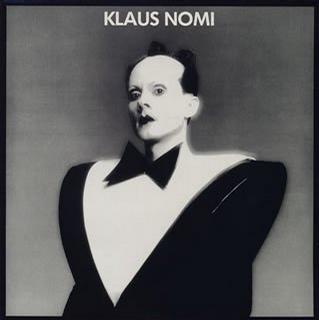This week marks the 23rd anniversary of World AIDS Day. One of the
things that AIDS has made us do is talk about it, to learn and
understand it and the lives it affects. I’d like to share a few
stories, if I may, about the people with HIV/AIDS who have affected
me.
Often when discussing some of the first casualties of AIDS, writers will categorize an individual as being “one of the first celebrities to die from AIDS,” but as to which one was the first depends on what you define as a celebrity. For some it was Patrick Cowley, the man who helped forge the sound that would later be known as Hi-NRG. For others it would be Hibiscus, a leader of famed queer collective “The Cockettes.” But one name that often pops up is that of Klaus Nomi.

Nomi was an anomaly in the pop world at a time where anomalies were becoming increasingly common (Laurie Anderson, anyone?). His visual aesthetic was that of Weimar Republic meets Japanese theatre, while his music mixed early electronic sounds with classic pop ditties. And then there was that voice.
Nomi was a countertenor, an often underappreciated vocal range that many in the world of pop music found bizarre, if not unsettling. But Nomi’s voice shone best when he was singing from a classical repertoire, recording everything from German Lieder to early opera arias. Even though he made his reputation by putting an often kitschy wrench into songs such as “Lightning Strikes,” he made a point of releasing some of his more classically minded recordings as B-sides to his singles. Case in point: “Cold Song,” from a 17-century English opera by Purcell, which was the B-side to one of his first singles, “Nomi Song.”
Nomi would even go on to perform with David Bowie on Saturday Night Live, with Klaus providing backup vocals (along with Joey Arias) on “The Man Who Sold the World.” But almost as quickly as he came into our world, he left.
Nomi died in 1983 due to complications from AIDS. Around the same time, the scene in downtown New York began to crumble. Disco had gone (way) underground, the former artists who used to live in squats were now superstars (Basquiat) and New York City itself was getting “cleaned up” for tourists. But there are people who will never forget Nomi. In 2004, Andrew Horn released the documentary The Nomi Song, featuring interviews and rare concert footage. His likeness recently appeared on the animated television series The Venture Bros, alongside Iggy Pop and his former friend David Bowie.
There will never be another Nomi.

 Why you can trust Xtra
Why you can trust Xtra


